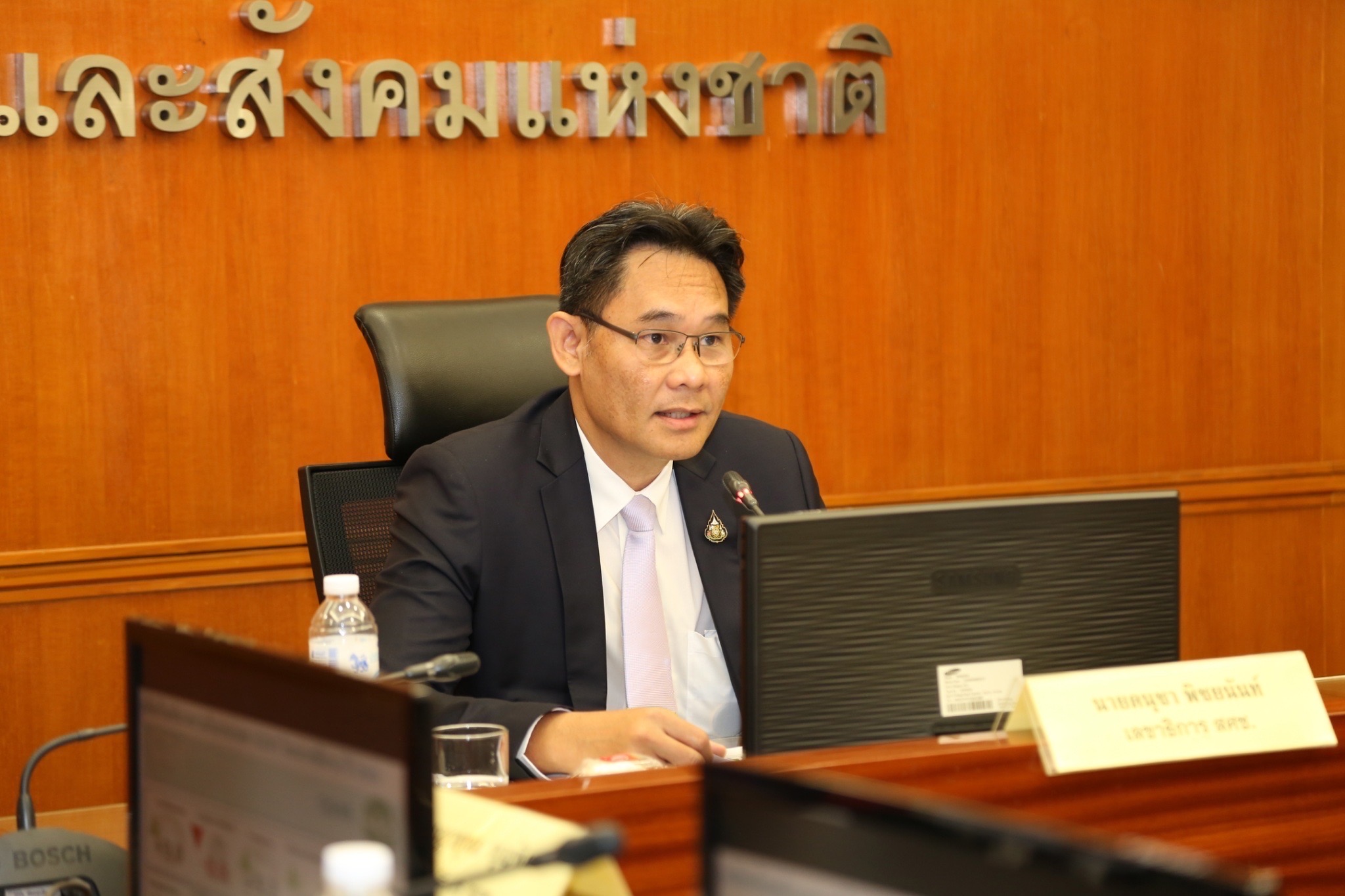SD/climate change
SD/climate change
Chatrudee Theparat
When climate change is getting closer, how should we react?
Thailand has been more than 40,000 floods in the past 30 years, resulting in more than 2,000 deaths, costing more than 12.59 trillion baht.
Secretary General to the National Economic and Social Development Council (NESDC) Danucha Pichayanan said in recent times, natural disasters tend to be more disastrous and more common compared to the past. Data on the frequency of disasters showed that the younger generation is three-time more likely to experience natural disasters than those born in 1960. During 2000 – 2019, there have been 7,348 major disasters in the world, resulting in 1.23 million deaths, costing approximately US$ 2.97 trillion in losses.
For Thailand, there have been more than 40,000 floods in the past 30 years, resulting in more than 2,000 deaths, costing more than 12.59 trillion baht.

Secretary General to the National Economic and Social Development Council (NESDC) Danucha Pichayanan
A study of recent disasters that occurred during the last 20 years pointed out that this is not just a natural phenomenon. Those disasters are mainly the result of human-induced global warming, particularly from the emissions of carbon dioxide (CO2 ) which have increased greenhouse gas concentration in the atmosphere; eventually, contributing to the higher global average temperature.
A study by the Intergovernmental Panel on Climate Change (IPCC) in 2021 revealed that the global temperature has risen by 1.09 Celsius due to increasing atmospheric CO2 concentrations that are at the highest level for the past two million years, while the global mean sea level has risen by three times compared to the past. This data has warned that global warming should be a concern for all humans.
According to a survey of people across the world, including in Thailand, it was found that most people are aware of the impact of global warming and want urgent management.
The issues that need to be urgently addressed are forest conservation/land use, renewable energy usage, appropriate farming methods, electric vehicle usage, and warning system for critical infrastructure. Nonetheless, in terms of responsibility, most Thais viewed the issues as a responsibility of the government and businesses (40 %), while only 28 % viewed it as everyone's responsibility.
In addition, only 35 % of Thais agreed with reducing fossil fuel usage. Thus, such a survey reflected the low level of awareness of the Thai people in addressing climate change issue. In the recent past, the global community has reached an agreement to keep the global average temperature below 1.5-2 degree Celsius.
Several actions have been taken in order to mitigate climate change, including preserving trees to create carbon sinks, adjusting farming patterns to reduce greenhouse gas emissions, promoting clean energy usage, developing weather forecasting/warning systems, and improving disaster prevention innovation. In addition, there is also an agreement to raise awareness regarding living more environmentally friendly.
For Thailand, several measures have been implemented along with the global community, such as forest restoration and conservation, research of plants that reduce methane/nitrous oxide emissions, setting a goal to increase the share of renewable energy usage, providing disaster warnings as well as developing a course/activity/learning media on global warming.
However, Thailand’s response still faces several challenges, particularly lacking agricultural research plan to reduce greenhouse gas emissions, a low and decreasing share of alternative energy usage, and a disaster warning system with scattered data collection. Additionally, Thai people still misunderstand the causes of global warming while perceiving it as a distant matter; therefore, daily behavior has not been changed to mitigate climate change issues.
Thus, the key implementation that Thailand needs to emphasize on are changing agricultural 6 practices to reduce greenhouse gas emissions; increasing the proportion of clean energy usage, especially in the transportation sector; developing weather forecasting and early warning systems to be effective and comprehensive in all areas.
Research on innovations in flood prevention by using international case studies, and; creating literacy regarding global warming issue to the public through effective communication in order to raise awareness of global warming issues and lead to behavioral changes for reducing greenhouse gas emissions.
26 December 2022
Viewed 269 time
 EN
EN 




